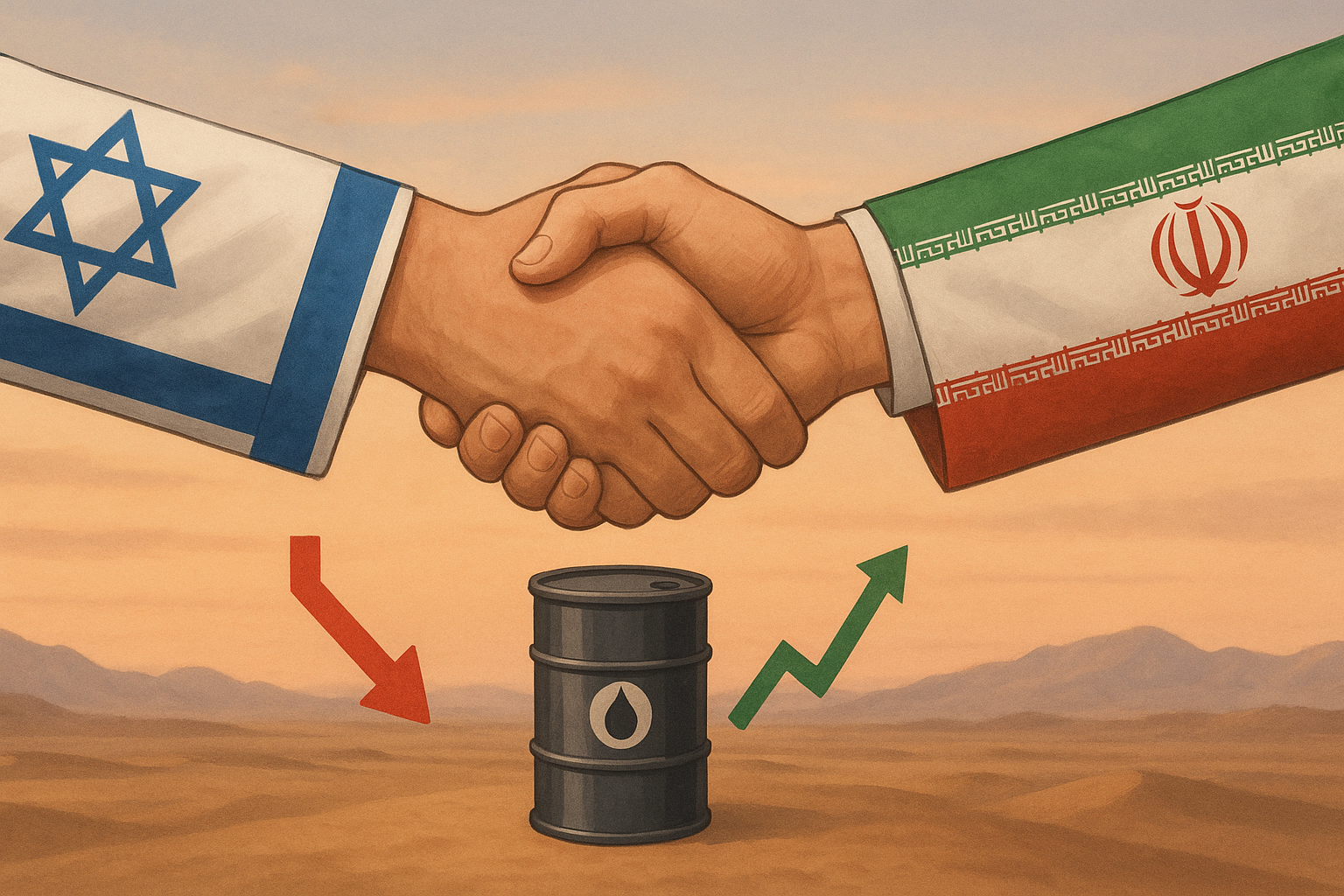A surprising diplomatic breakthrough appears to be taking shape between Israel and Iran, potentially ending months of tit-for-tat strikes that have kept the region—and global energy markets—on edge. Oil traders responded with unmistakable relief, sending Brent crude tumbling nearly 3% as the prospect of widening conflict receded.
Let's not get carried away, though. This isn't exactly a "peace treaty" we're talking about. It's more like a mutually agreed upon timeout in a schoolyard brawl where both kids are nursing bloody noses and secretly grateful for the teacher's intervention.
Having covered Middle East politics for years, I've seen these moments come and go. The diplomatic language emerging from mediators is carefully calibrated—allowing each side to claim victory while stepping back from the brink.
What's really happening here? After Iran launched its unprecedented direct missile attack on Israel back in April (remember those dramatic night sky videos that flooded social media?), and Israel responded with its own strikes, both countries seem to have made their point. They've reached what experts call a "costly signaling equilibrium"—a fancy way of saying they've proven they're serious without completely destroying each other.
The timing couldn't be more telling.
Markets get this dynamic better than most political analysts do. I spoke with several energy traders in London yesterday who confirmed what the numbers suggest—the relatively muted price swings during recent military exchanges indicated investors had already calculated that self-preservation would eventually win out over saber-rattling.
"Everyone talks tough until their currency starts tanking or domestic pressure builds," one trader told me, requesting anonymity because he wasn't authorized to speak publicly. "We've seen this movie before."
The fog of war isn't just a military problem—it wreaks havoc on financial models too. When reliable information becomes scarce, risk premiums expand like a balloon. What we're witnessing now is that balloon slowly deflating as predictability returns to the equation.
Perhaps the most fascinating aspect? The emerging diplomatic architecture.
Qatar and Oman—relatively small regional players—have stepped into crucial mediating roles. There's a certain genius in being the reasonable middle party when giants are locked in conflict. These nations have essentially carved out a valuable niche in the diplomatic marketplace, and the geopolitical returns on that investment are substantial.
For investors, the implications stretch far beyond oil prices.
Defense stocks that surged during escalation are now facing readjustment. Cybersecurity firms that benefited from heightened regional tensions may need to revise growth projections downward. And all that capital that fled to safe havens? It's now flowing back into riskier assets—gold prices are already retreating from recent highs.
Bond traders might recognize what's happening as a "term structure of political risk." Short-term conflict risk is declining sharply, but long-term instability remains priced in. It's essentially a steepening yield curve of geopolitical stability... if such a thing existed.
Look, we've been fooled before. The mechanics of cease-fires are notoriously complex, especially when domestic hardliners on both sides view compromise as weakness. The implementation challenges—verification mechanisms, sequencing of steps, managing extremist factions—remain formidable obstacles.
An Israeli security official I've known for years texted me this morning: "We're not planning victory parades, but we're cautiously optimistic that both sides see the diminishing returns of the current trajectory."
If past cease-fires teach us anything, the path forward will resemble a roller coaster more than a highway—progress, setbacks, recalibration, repeat.
But markets—in their chaotic collective wisdom—are betting that economic reality will ultimately trump political theatrics. Which might be the most hopeful thing you can say about human nature: that even our deepest conflicts eventually bow to the practical recognition that continued fighting is just bad business.
And in this region? That's about as close to a happy ending as we're likely to get.
